Starting a Wine Tourism Business: Our Tips to Get Started
Summarise this article with :
Wine tourism is the creation of a tourist experience directly connected to the world of wine.
Booming both in France and worldwide, these activities are increasingly embraced by winemakers. For a wine estate, wine tourism offers the opportunity to gain new visibility, attract a broader clientele of both individuals and groups, and diversify activities and revenue streams.
In regions like the Loire Valley, this approach also enhances the long-term value of estates: discover the advantages and opportunities of a vineyard in the Loire Valley.
But how can an estate successfully embark on a wine tourism journey today? What kinds of experiences can be offered to visitors? And what training is available for winegrowers? In this article, let’s take a closer look at the world of wine tourism!
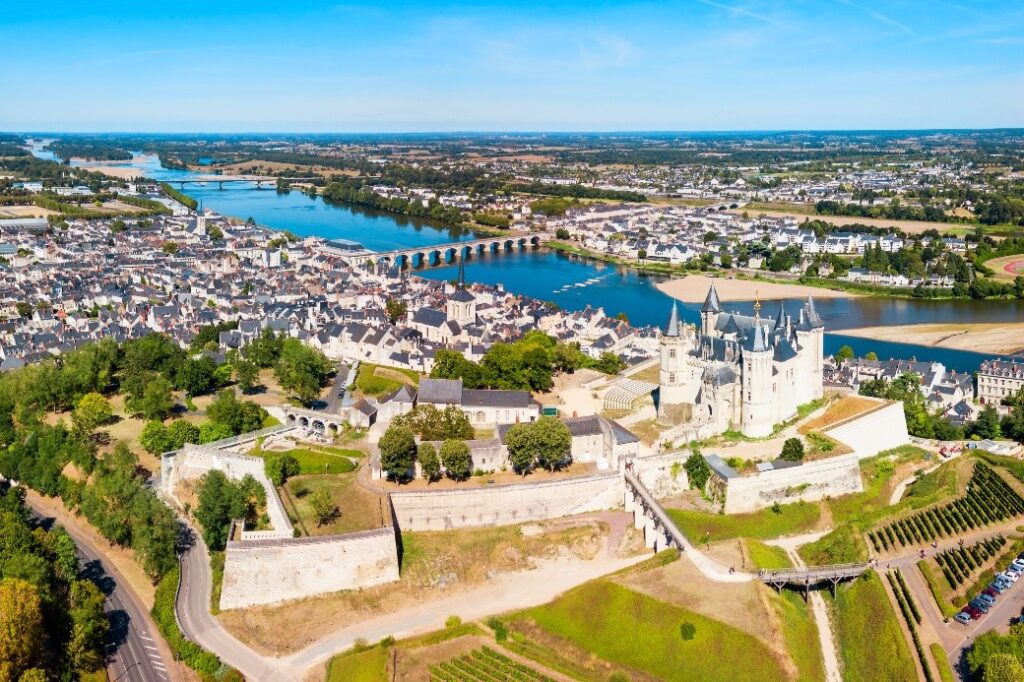
Wine Tourism in France
In 2009, France, global leader in both wine and tourism, created the National Wine Tourism Council (Conseil Supérieur de l’Œnotourisme).
Its mission is to develop wine tourism by opening new opportunities for direct sales, particularly for independent winemakers but also for cooperatives. The Council also works to enhance the attractiveness of wine regions through calls for projects, training programs, information sharing, and professional networking.
Today, wine tourism in France attracts over 10 million visitors every year, with 52% being French and 48% international. This represents a remarkable increase of more than 30% since 2009, when numbers reached 7.5 million visitors.
Visitor profiles are diverse: wine enthusiasts, cultural tourists, families, and groups. Expectations are evolving too, with growing demand for hands-on experiences, short formats or turnkey weekend packages, and convivial spaces for sharing and discovery.
The total annual revenue of French wine tourism is estimated at €5.2 billion, with visitors spending an average of €1,250 per stay. Today, more than 10,000 wine estates and cellars welcome tourists across the country.
And these figures keep rising, as wine tourism continues to attract both new visitors and more and more winemakers eager to diversify their activities.
Wine Tourism Activities
Wine tourism offers a wide range of possibilities, and each estate can design experiences that highlight its own identity and expertise.
Each experience is an opportunity to introduce visitors to the Loire’s exceptional diversity — from Muscadet to Sancerre, explore 10 must-know appellations of the Loire Valley.
Here are some of the most popular activities:
Wine Tastings
Whether or not an estate has a fully developed wine tourism program, tastings are the cornerstone of the experience. They are highly valued for the close connection they create between the winemaker and the visitor.
Tastings can be self-guided or hosted by the producer, providing a unique opportunity to share knowledge, tell the story of the estate, showcase the specific character of each cuvée, and encourage direct sales.
Some tastings go further, taking the form of sensorial workshops, introductions to organoleptic analysis, or food and wine pairings featuring cheese, chocolate, or other regional specialties.
Guided Cellar Tours
A timeless classic, yet essential: the cellar tour is often the first step for visitors. It takes them straight to the heart of winemaking, allowing them to understand the different stages of vinification and appreciate the precision required in the winemaker’s craft.
These tours usually end with a guided tasting, a genuine moment of exchange and conviviality. To enrich the experience, some estates also provide educational materials or offer tours in foreign languages.
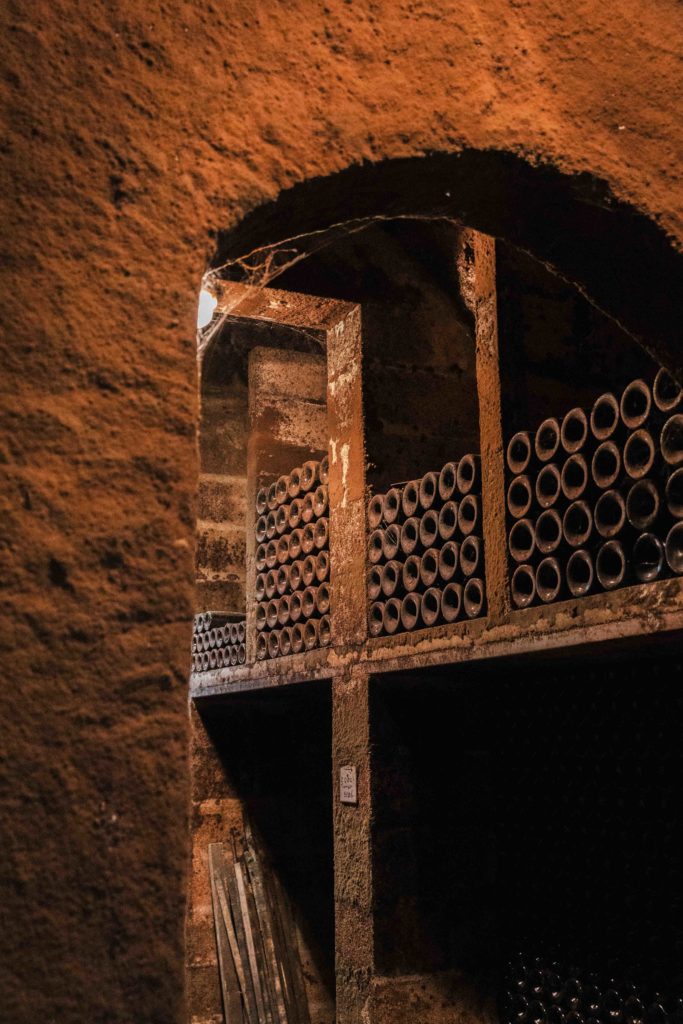
Oenology Classes & Masterclasses
Many visitors are eager to deepen their knowledge of wine. By offering classes led by the winemaker or a professional oenologist, estates can showcase their expertise.
These sessions may cover topics such as the history of wine, winemaking techniques, aromas and defects, or ageing methods. They are designed for both enthusiasts and beginners seeking to broaden their understanding.
Exploring the Vineyard
Walks and excursions through the vines provide an authentic, sensory immersion. Whether on foot, by electric bike, off-road scooter, horseback, or 4×4, these activities allow visitors to discover the vineyard in all its diversity: grape varieties, terroir, cultivation practices (organic, biodynamic, agroecological), and local biodiversity.
These moments foster a strong connection to nature and terroir, enhancing the visitor’s emotional bond with the estate.
Immersive Experiences
Interactive activities turn visitors into active participants:
- Taking part in the harvest
- Blending their own cuvée in a wine-creation workshop
- Designing a personalized wine label
Such experiences increase engagement and create lasting memories. They appeal to families, groups, and companies alike, making the estate a genuine experiential destination, where wine is lived before it is tasted.
Weekend Packages (Hotels, Guesthouses & Bed and Breakfasts)
Offering turnkey wine tourism stays is an excellent way to attract visitors from further afield. By providing charming accommodations, an estate can design weekend packages that include: cellar tours, tastings, food and wine pairings, vineyard walks, or creative workshops.
This approach encourages customer loyalty and extends the experience beyond a simple cellar visit.
Restaurants
Opening a table d’hôtes or collaborating with a local chef allows the estate to offer a gastronomic experience centered around its wines.
Each dish becomes an opportunity to highlight a cuvée: telling its story, explaining its pairing, and showcasing its character. This reinforces the estate’s reputation and strengthens its role in the local culinary culture.
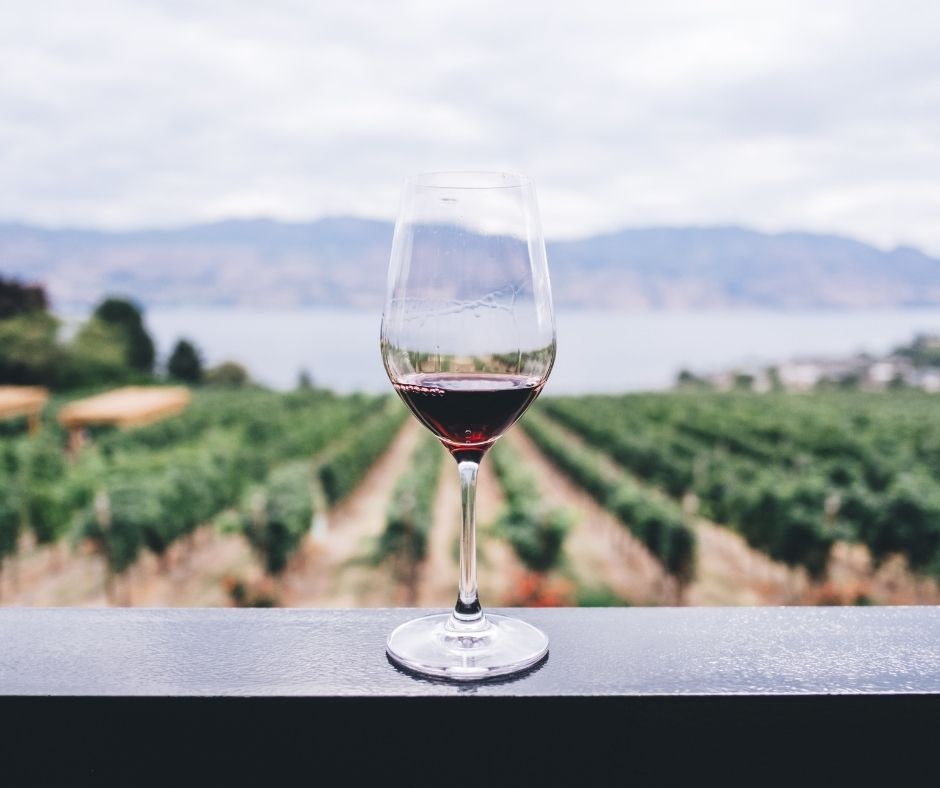
Reception Venues
A wine estate provides an exceptional setting for hosting private or corporate events: weddings, birthdays, seminars, product launches, and more.
Making a reception hall or outdoor space available creates additional revenue while introducing the estate to new audiences. To ensure a tailored experience, it is essential to adapt services such as catering, furniture, and decoration.
Corporate Seminars
Vineyards offer a unique and inspiring environment for organizing seminars, team-building sessions, or professional meetings. Increasingly, companies are seeking out unusual venues that encourage cohesion, creativity, and disconnection from everyday workspaces.
As a winemaker, you can provide bespoke services: a fully equipped meeting room, food and wine pairing lunches, wine-themed activities, blending workshops, or vineyard excursions. In this way, the estate becomes a bridge between the professional world and the terroir.
Games & Interactive Activities
For families or groups of friends, offering fun and playful activities can be a real highlight:
- Escape games inside the cellar
- Treasure hunts through the vineyards
- Plant mazes
- Creative workshops for children
These games make the estate accessible to all ages, energize the visit, and can also serve as an educational gateway to discovering the vineyard.
Concerts & Open-Air Cinema
Hosting cultural events is an excellent way to attract new audiences, often from the local community, who may later return to discover your wines.
Whether it’s a live concert or an open-air film screening among the vines, these events create a festive and convivial atmosphere. They also enhance the estate’s image as a lively, dynamic destination.
To make the experience complete, consider offering light snacks, and of course, tastings of your wines.
Wine Therapy
Combining well-being and wine is the winning concept behind wine therapy.
Some estates now offer treatments based on grapes or grape marc, renowned for their antioxidant properties. In a peaceful vineyard setting, visitors can enjoy baths, scrubs, body wraps, or relaxing massages, before or after a cellar tour or tasting workshop.
This type of offer is especially appealing to wellness seekers and female clientele looking for unique experiences during short wine tourism getaways or weekend retreats.
And Many More…
The possibilities are endless. It’s up to each winemaker to find the right idea that will capture new clients. The key is then to adapt the estate to the chosen activity and know how to promote it effectively.
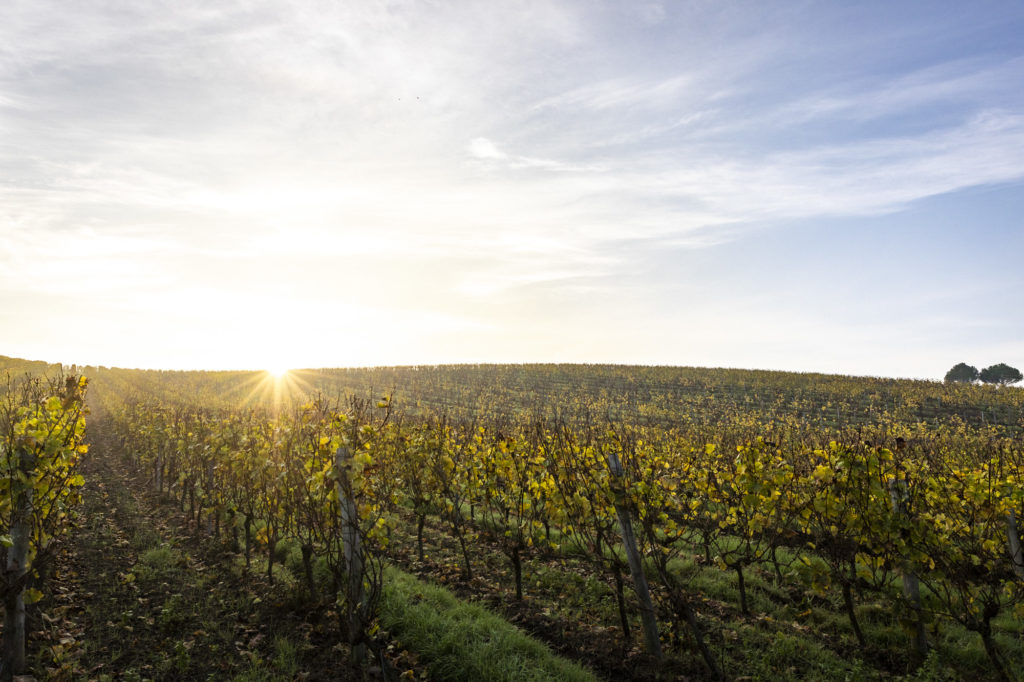
Creating and Promoting Your Wine Tourism Offer
Wine tourism is an opportunity to tell your story, share your passion, and build lasting relationships with visitors.
Defining Your Project
Several key questions should guide the creation of your offer:
- What technical resources do I already have, and which ones need to be put in place?
- What budget should I allocate to this activity?
- What type of clientele do I want to attract?
- Do I need to recruit additional staff?
- What are my commercial objectives?
- What will be my opening days and hours?
- How much time can I dedicate to this activity in my schedule?
Clarifying these points will help you target the most relevant activities to implement at your estate.
The initial investment can remain modest, especially if you start with simple tours and tastings. Financial support schemes also exist to help estates set up and promote wine tourism activities.
Adapting Your Estate
Once your project is defined, it’s time to bring it to life. This may include adapting your estate to welcome visitors, renovating or building facilities, and hiring the right staff.
Equally important is ensuring compliance with safety standards and securing the necessary insurance coverage for each activity offered. Depending on the estate, this stage may be the most time-consuming, but it is absolutely essential for success.
Crafting Your Story
The success of a wine tourism activity relies heavily on the quality of the welcome and the ability to deliver an authentic message.
When launching into wine tourism, it is essential to refine your storytelling, your hospitality, and your discourse. The words you choose matter: your narrative should captivate visitors and hold their attention.
A warm and genuine welcome ensures that every guest feels unique and valued. A satisfied visitor is far more likely to purchase wines directly from the estate and share their positive experience with others.
Communication & marketing
To succeed, an estate must build visibility, attract its target audience, and define a clear commercial strategy.
Several tools and techniques can be used, for example:
- Partnering with local or regional tourism professionals
- Promoting the estate through its website
- Leveraging social media platforms
- Listing offers on partner websites dedicated to tourism or wine tourism
- Developing strong customer service and reliable CRM tools
- Building a professional network (wine unions, trade councils, interprofessional associations)
- Applying for official labels and certifications
- Working on press and media relations
- Investing in advertising campaigns
With so many communication and marketing tools available today, every estate can find effective ways to boost its visibility and promote its wine tourism activities.
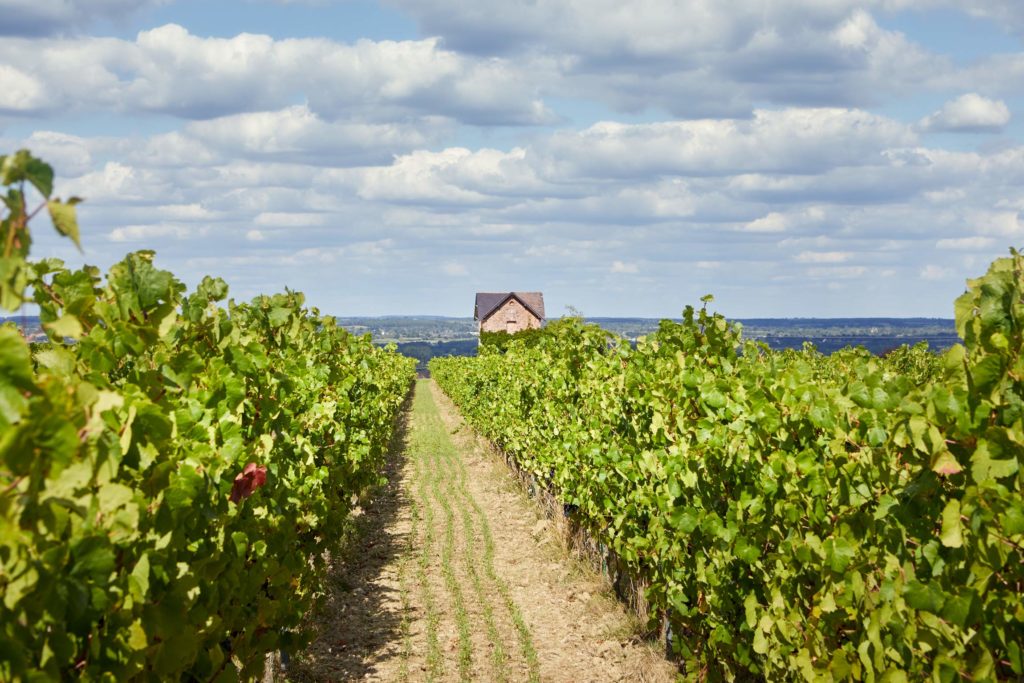
Wine Tourism Training Programs
An increasing number of schools now offer specialized programs in wine tourism, covering a wide variety of fields.
For example, several universities provide dedicated degrees:
Bordeaux also offers a Bachelor’s program in Wine Tourism: Professions in Tourism, Communication, and Regional Promotion.
The Institut Universitaire de la Vigne et du Vin in Dijon offers a Bachelor’s degree in Wine Business and Wine Tourism.
The Université du Vin in Provence runs training sessions on Wine Business, Wine Tourism, and Wine English.
The Université de Nîmes delivers a one-year professional degree in Wine Tourism and Cultural Project Management.
The Université de Bordeaux offers a Master’s program in Wine Economics, Wine Tourism, and Interculturality.
The Université de Toulon proposes a specialization in Wine Tourism and Sustainable Local Products.
The Université de Reims provides a degree in Wine Tourism Management.
Several well-known business and communication schools in France’s wine regions now offer programs dedicated to wine tourism.
The Burgundy School of Business launched its School of Wine & Spirits Business in 2013, now recognized internationally.
INSEEC has developed a work-study program in Wine Business & Wine Tourism and also integrates wine tourism modules into its Bachelor’s degree in Wine and Spirits.
KEDGE Business School created its KEDGE Wine School, which offers a wide variety of specialized programs covering all aspects of the wine industry.
Finally, schools of viticulture are also opening up to wine business and tourism. For instance:
- The Agricultural and Viticultural High School of Amboise offers a specialization in Sales of Food Products, Wines, and Spirits.
- The École Supérieure des Agricultures in Angers provides a professional degree in International Marketing and Trade of Terroir Wines.
At every level of study and across different specializations, there is now a wide range of educational pathways in wine tourism, adapted to various profiles and career goals.
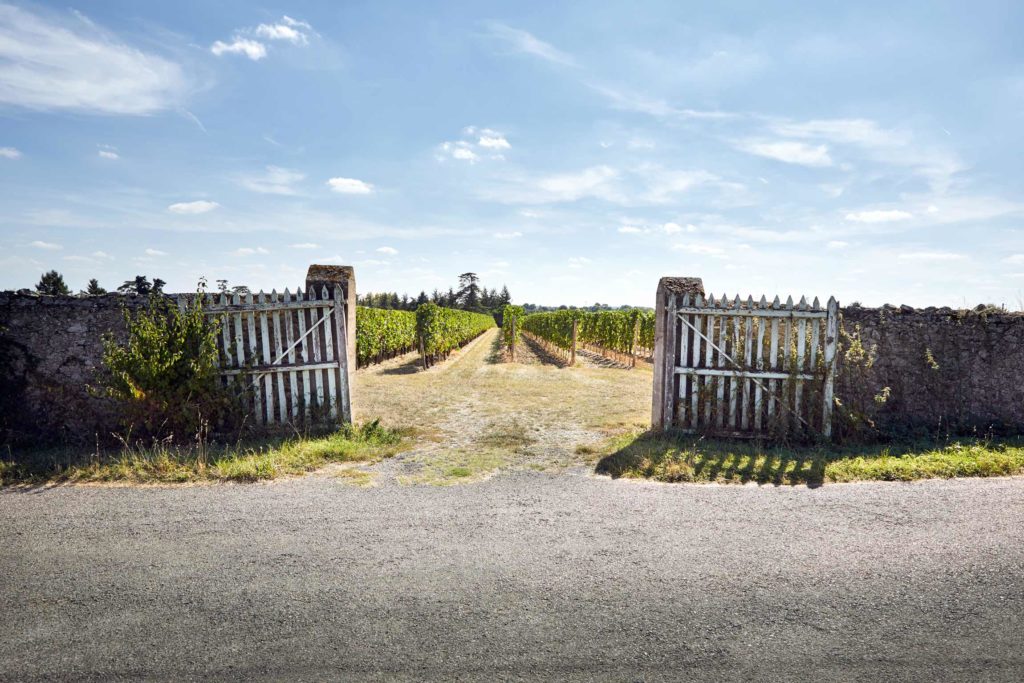
Conclusion
Creating a wine tourism activity is a profession in its own right, requiring the full commitment of the estate’s team.
Yet the benefits are many: greater visibility for the estate, new customers, and increased revenue. Wine tourism is also an excellent way to promote French winemaking expertise, showcase the richness of a wine region, and pass on the passion for wine.
It highlights the diversity of vineyard professions, supports the growth of the French wine industry, and sustains local employment.
So, why not take the leap and embark on the adventure of wine tourism?
At Ampelio, our philosophy is built on trust, expertise, and passion: discover Ampelio’s values and commitment to the Loire Valley vineyards.
Whether you wish to diversify your activity or transfer your estate, our specialists can guide you through the sale of a wine estate with clarity and precision.
At Ampelio, our mission is to create the right match between a wine estate and its future owner. We place people at the very heart of our work.
In every transfer, our main concern is ensuring that the association is lasting, sustainable, and balanced — so that each party can thrive and find value in the project. The economic future of the wine estate is also a key element we take into account.
We actively support these transitions and dedicate all our expertise to serving each project.
Do you have a question about selling or buying a wine estate?
Our team will be delighted to discuss your project with you and answer all your questions.
Ampelio brings over 10 years of experience in supporting and advising on wine estate transactions in the Loire Valley.

